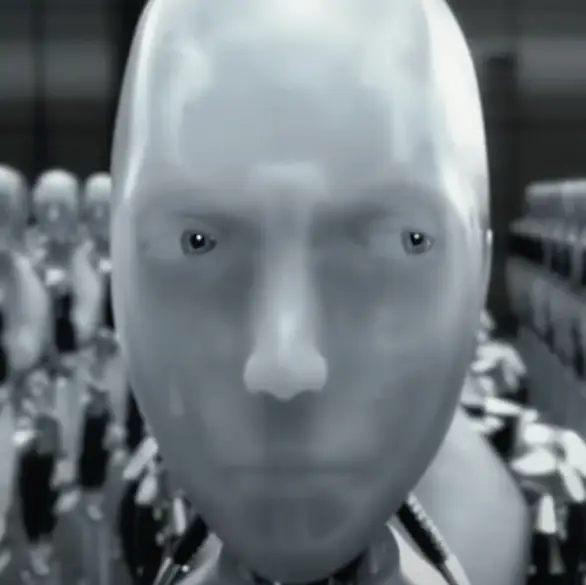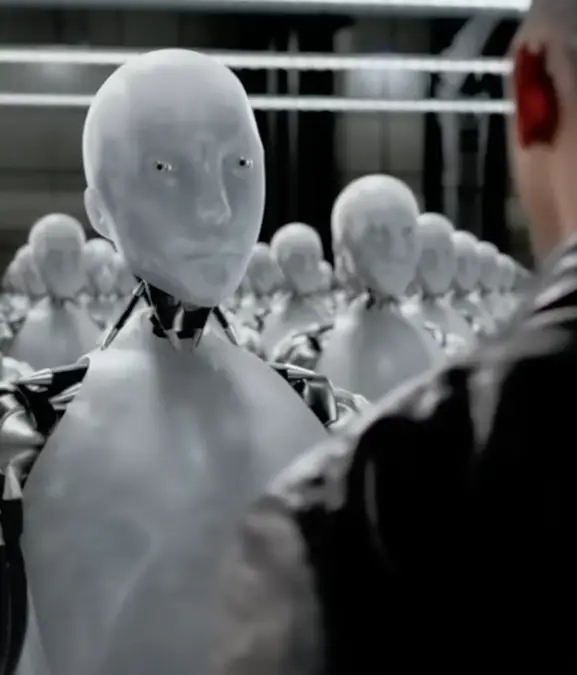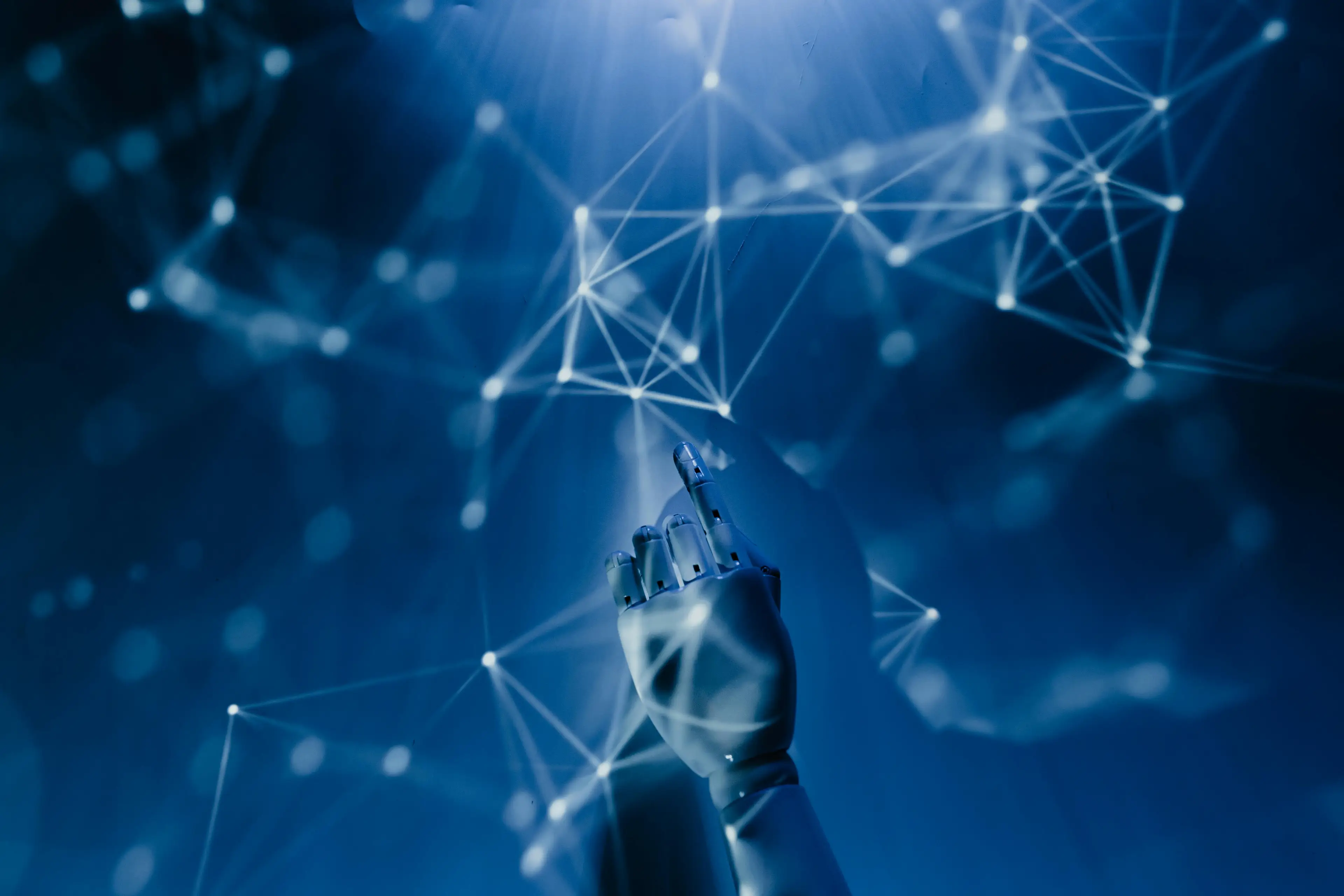

Featured Image Credit: TM & © Fox

If you had to pick a movie from the last two decades that nails the future of AI, you'd probably guess I, Robot.
And you'd be right!
Last month marked 20 years since the release of this sci-fi classic.
The movie follows Del Spooner (played by Will Smith), a homicide detective in the Chicago Police Department who gets called in to investigate a suspicious suicide at U.S. Robotics, a leading robotics lab.
Advert
The company’s founder, Alfred Lanning, has apparently thrown himself to his death, but Spooner soon finds himself hunting a rogue robot that might be behind a potential robot uprising.

Though it was a hit back then, grossing $353 million at the global box office - and remains a fan favourite - its themes feel more relevant and urgent today.
I, Robot explores the limits of self-regulation. It shows a dystopian world where no government or military is nowhere to be found, and no federal laws are present.
The humanoid robots are ruled by the Three Laws from U.S. Robotics which are to ensure that they remain harmless and obedient as they live and work alongside humans.
Even if AI in our world don’t have robot bodies yet, the questions about safety remain. Will we be safe living in a world alongside robots?
And what happens when the AI becomes smarter, or consciously aware?
With billions being invested in AI and robots - like those made by OpenAI and other startups - the stakes are high.
Billions of dollars are being poured into AI models that can generate human-like creative work and analyse complex data sets in seconds.

OpenAI's ChatGPT is under constant regulation, updates and monitoring as the team keeps the chatbot in line with morality, such as forbidding 'generating erotic and violent speech'. Although, some tech-savvy experts know how to challenge it.
Governments and regulators are quite relaxed in enforcing common-sense laws that protect us from simple ways AI can generate discrimination, disinformation and sexually abusive content.
There's also tonnes of investment going into humanoid workers for factories and customer service so it's showing no signs of slowing down or stopping. In other areas, AI is helping people with severe impairments to communicate through technology like using a computer with a brain implant.
Many are wondering if we’re heading toward a future where these technologies could have dangerous consequences. Could a mass-extinction event be on the cards?